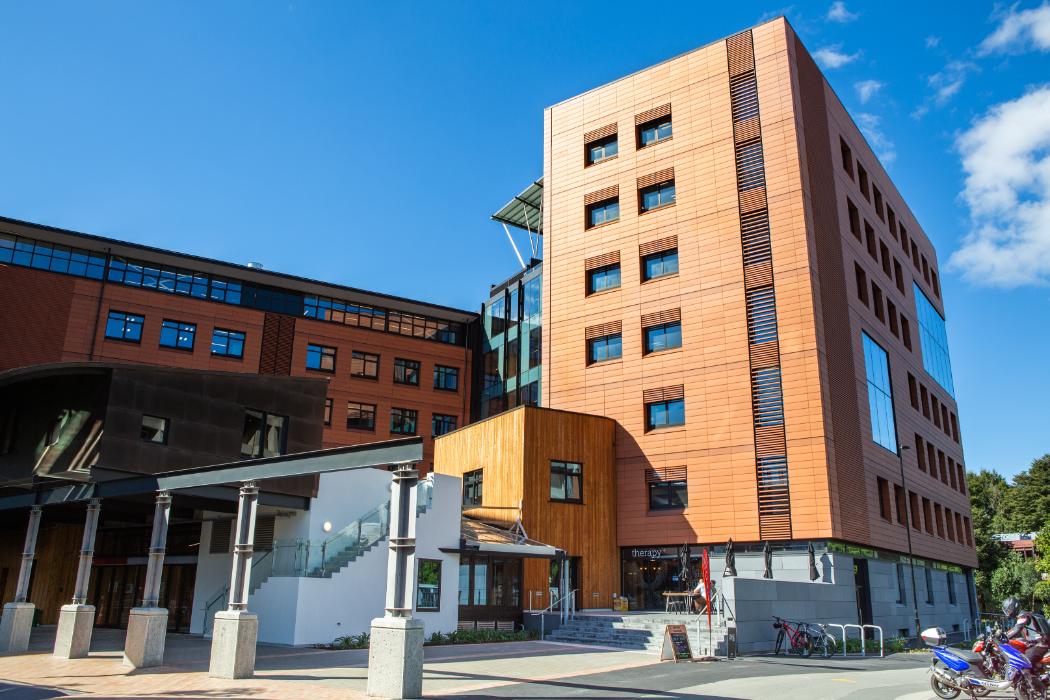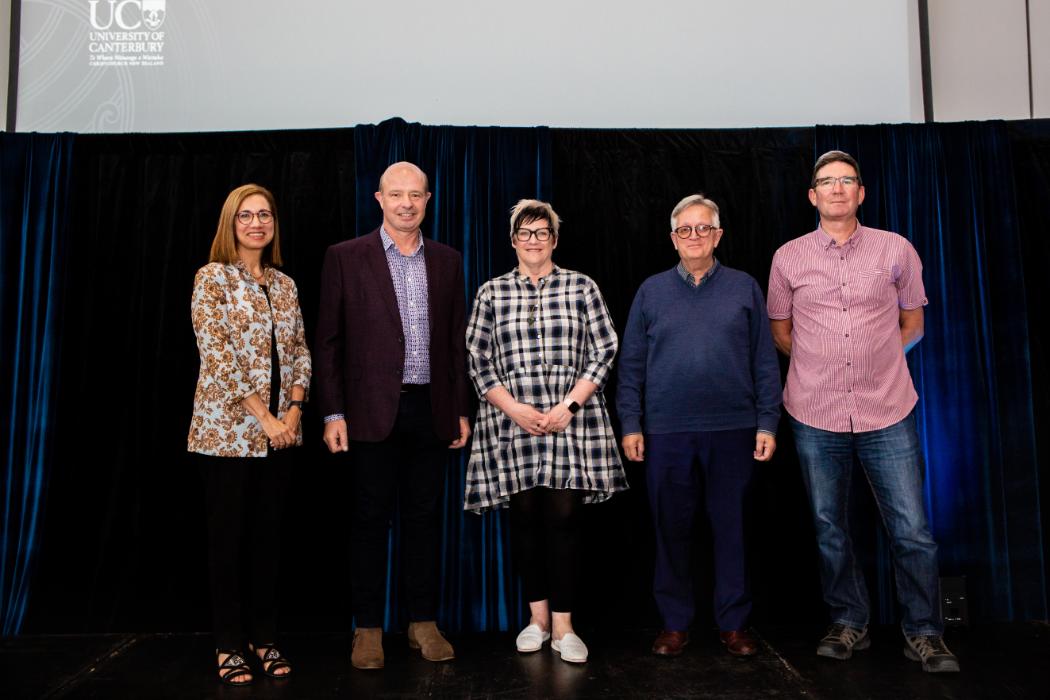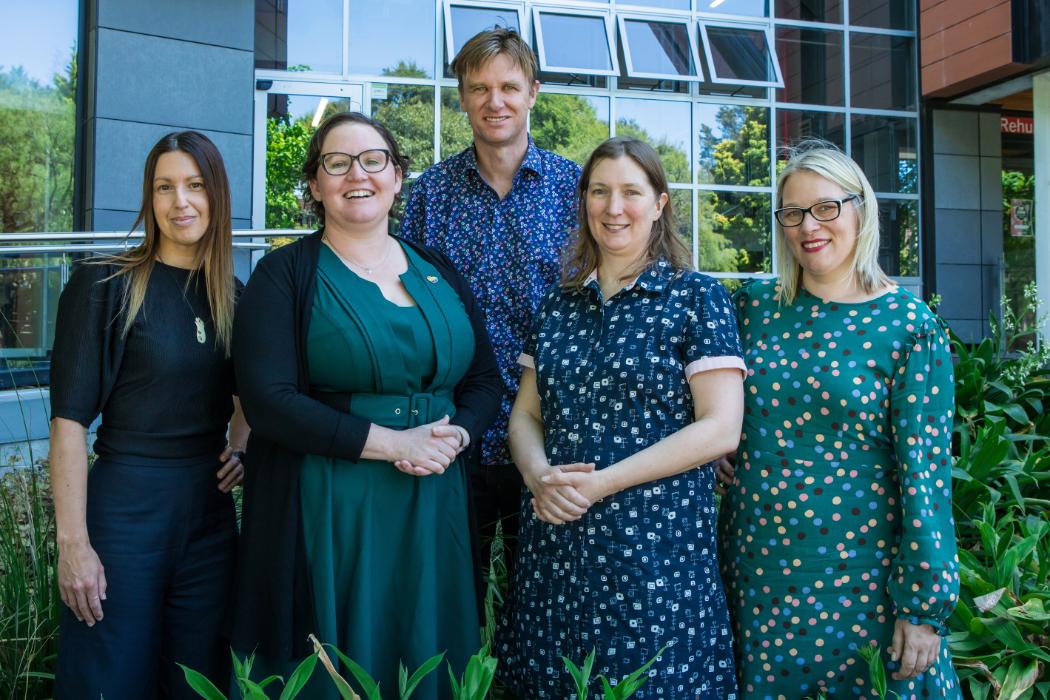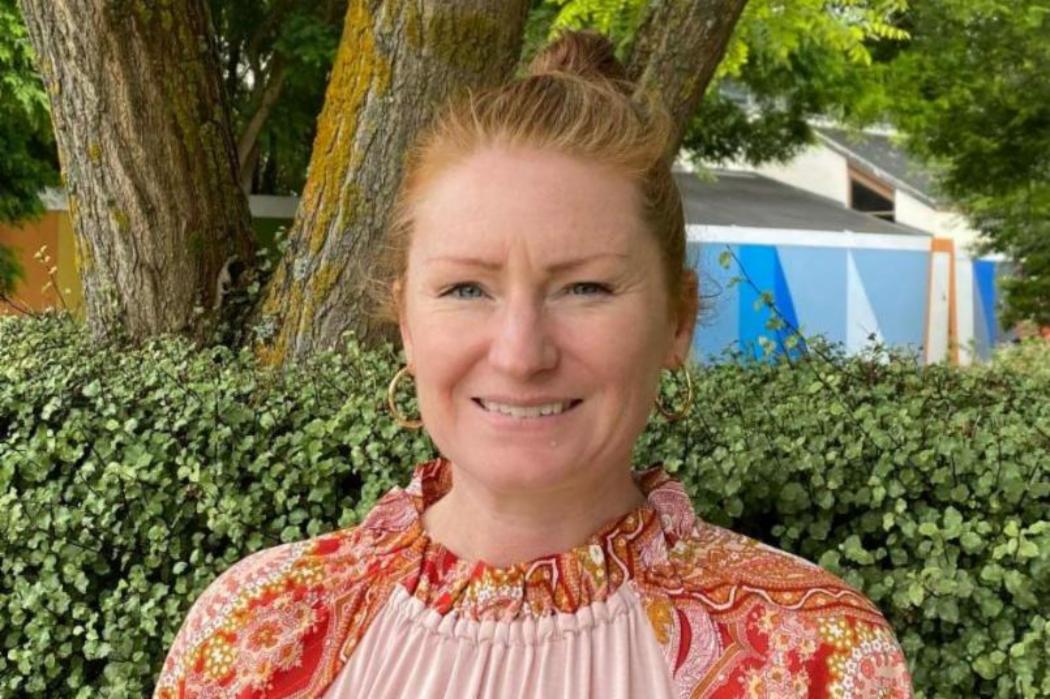COMNAP Executive Secretary Michelle Rogan-Finnemore, University of Canterbury (UC) Vice-Chancellor Professor Cheryl de la Rey and UC Gateway Antarctica Director Professor Adrian McDonald with the renewed MOU between UC and COMNAP.
Established in 1988, COMNAP’s purpose is to develop and promote best practice in managing support of scientific research in Antarctica. They work with Antarctic programmes around the world to facilitate research, share information and ideas on operations and logistics, and develop guidance on a range of topics, including safety, environmental management and more.
Previously hosted in the United States and Australia, New Zealand won hosting rights for the COMNAP Secretariat (their international, inter-governmental Antarctic headquarters) following a competitive international bidding process in 2008. UC’s Gateway Antarctica department was recommended to host the Secretariat soon after. This year marks the third renewal of the memorandum of understanding (MOU), taking the partnership through to 2027.
For the Director of Gateway Antarctica, Professor Adrian McDonald, it was an easy decision to continue housing the Secretariat at UC.
 L-R: University of Canterbury (UC) Gateway Antarctica Director Professor Adrian McDonald, COMNAP Executive Secretary Michelle Rogan-Finnemore, and University of Canterbury Vice-Chancellor Professor Cheryl de la Rey in front of an original artwork by Margaret Elliot, a New Zealand artist with close ties to Gateway Antarctica.
L-R: University of Canterbury (UC) Gateway Antarctica Director Professor Adrian McDonald, COMNAP Executive Secretary Michelle Rogan-Finnemore, and University of Canterbury Vice-Chancellor Professor Cheryl de la Rey in front of an original artwork by Margaret Elliot, a New Zealand artist with close ties to Gateway Antarctica.
“It’s a fantastic way to assist the Antarctic community while providing a powerful demonstration of our enthusiastic support and involvement with the Christchurch Antarctic community – something we believe bolsters Christchurch’s role as an Antarctic gateway city,” Professor McDonald says.
The signing of the renewed agreement took a unique turn following the re-emergence of the Covid-19 virus in New Zealand in August, as it prevented UC Vice-Chancellor Professor Cheryl de la Rey and COMNAP Executive Committee Chair (and Director of the US National Science Foundation’s Polar Programs) Dr Kelly Falkner from celebrating the milestone in person. Instead, the two met virtually to renew the agreement.
“The renewal of our memorandum of understanding with COMNAP will see the University of Canterbury become the longest running host of the Secretariat since its establishment,” Professor De la Rey says. “I am delighted to have had this opportunity to highlight the importance of Antarctic research to both the University and the city of Christchurch.”
Christchurch is one of five Antarctic gateways in the world and, as one of four formally recognised Antarctic-related headquarters in the world, COMNAP is considered a ‘jewel in the crown’ of the region’s gateway status.
COMNAP Executive Secretary and Director of the Secretariat, Michelle Rogan-Finnemore believes Christchurch is the perfect location for the Secretariat, given the number of national and international programmes regularly operating through the city, while travelling to and from Antarctica.
“The scope of Antarctic expertise at the University of Canterbury, focused by the efforts of Gateway Antarctica, means the Secretariat is well supported, and the partnership developed over the years can continue to grow,” she says.
Christchurch Mayor Lianne Dalziel will formally announce the renewed arrangement at an Antarctic civil event on Friday evening.
About COMNAP:
- COMNAP is the Council of Managers of National Antarctic Programs (the American English spelling of “programs” reflects the organisation’s origins in the US), established in 1988.
- The Secretariat was first hosted by the US (1989-1997), and then Australia (1997-2009).
- With the renewal of the MOU, New Zealand (through UC) has become the longest running host of the Secretariat.
- The COMNAP Secretariat is run by the COMNAP Executive Secretary (Executive Director), Michelle Rogan-Finnemore.
- COMNAP is formally recognised by the Antarctic Treaty System (ats.aq).
- There are 30 COMNAP Member National Antarctic Programmes and an additional 6 COMNAP Observer Programmes. All are the government entities responsible for implementing their countries’ Antarctic strategies.
- All COMNAP Member and Observer programmes are from the Antarctic Treaty Consultative countries or from an Antarctic Treaty Non-consultative country which have signed the Antarctic Treaty and the Protocol on Environmental Protection to the Antarctic Treaty.
- Despite suggestions to the contrary, The Antarctic Treaty and the Environmental Protocol have no expiration date.
- Antarctica is designated by international agreement as “a natural reserve, devoted to peace and science” (Environmental Protocol, Article 2).


.jpg)
.png)





